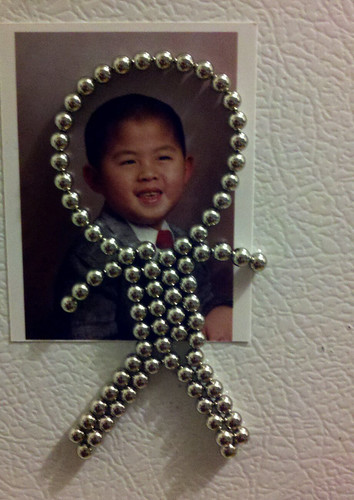With all of the changes and violence in the news, and people thinking about the end of the world and Biblical prophecies, something I’ve noticed lately is that most people have huge misconceptions about Satan and Hell. Even as Christians, we need to take note of the lies we’ve been fed…
 It begins when we watch cartoons as kids…. You know, when someone dies, there’s the devil: all red, with horns, a tail, and a pitch fork, waiting to welcome the newest inmates that have arrived for him to torment! — *ahem!* — Firstly, let’s remember that Satan is a fallen angel, formerly called Lucifer, who in his pride wanted to be equal with God. One third of the angels followed him, and they (now called “demons”) were all cast out of heaven.
It begins when we watch cartoons as kids…. You know, when someone dies, there’s the devil: all red, with horns, a tail, and a pitch fork, waiting to welcome the newest inmates that have arrived for him to torment! — *ahem!* — Firstly, let’s remember that Satan is a fallen angel, formerly called Lucifer, who in his pride wanted to be equal with God. One third of the angels followed him, and they (now called “demons”) were all cast out of heaven.
Satan’s status in Hell will be absolutely nil. He will have NO power. – Hell is a place of eternal death for Satan, his demons, AND all who have died a spiritual death due to sin. That is… all who are not covered by the blood of Jesus Christ, through faith! – Hell is complete separation from God… we wanted nothing to do with God, so that’s exactly what He gives us: the absence of Himself.
Satan is NOT the master of Hell! Satan didn’t create Hell, and God certainly didn’t create it for him as a place where Satan could be the ruler, and reign his terror on sinners. – [Our sins are disobedience against GOD’S law, and Satan is the worst offender. He has no right to punish anyone.] – The Bible tells us Satan is the “father of lies”, who masquerades as an angel of light. – His acting is convincing, and his temptations are tempting. (Obviously!) He wants to keep as many people bound by sin as possible.
Moreover, there is the concept of an/the Antichrist. Firstly, anyone who is against Christ is anti-christ, i.e. an antichrist. But Satan’s biggest attempt to overthrow God’s plan will ultimately be [the] Antichrist. Until he is thrown into Hell, Satan will continue to do all he can to steal, kill and destroy. He’s *always* trying to raise up the Antichrist, because although God knows who it will be, he doesn’t! He can’t see the future. — This is a good reminder to simply put our trust in the Lord, and not waste our life or money trying to figure out prophecies that God said we’re not supposed to know the answer to.
Maybe next time, when people around you are upset about the next big tragedy in the headlines, you can talk to them about how the one true God is a God of justice. He will never let the wicked go unpunished, and Satan will one day meet a very bitter end; never to gain power again.







